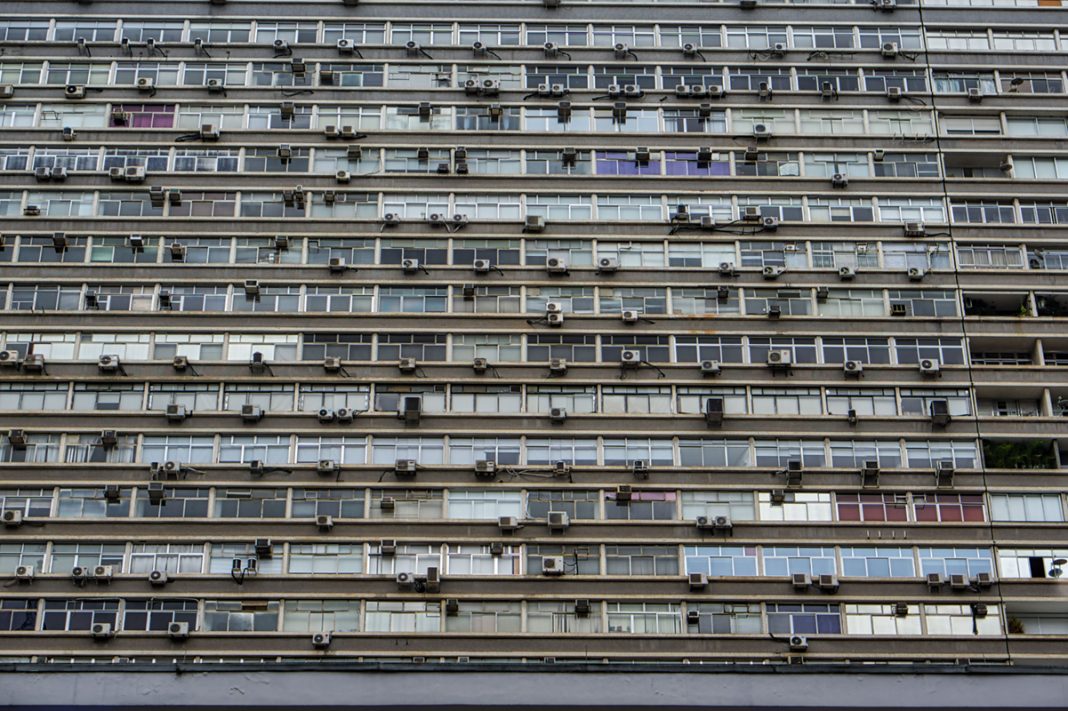Here, Gideon Bolt (Utrecht University) and Sybille Münch (Leuphana University) introduce the Erasmus+ project PusH and the issue of precarious housing, particularly in higher education
The lack of decent, affordable housing and the occurrence of informal, illegal, or unsafe housing across all EU Member States poses a threat to social inclusion in the EU and hinders the mobility of EU citizens and the integration of third-country nationals. However, so far the issue has not been taken up systematically in curricula in higher education across Europe. The Erasmus+ project PusH addresses this gap by creating accessible and engaging learning materials for students and practitioners across Europe and to promote widespread understanding of precarious housing as an urgent political issue of our time. The Strategic Partnership unites seven partners bringing together a wealth of international expertise on precarious housing: Leuphana University (coordinator), University of Utrecht, Centre for Economic and Regional Studies (KRTK), Iuav University Venice, Danube University Krems, Open Society Institute Foundation, and the University of Durham.
A housing crisis?
Madden & Marcuse (2016) take issue with the term “housing crisis” as invoked by many commentators and activists, especially since the global financial crisis of 2008. They argue that the word crisis implies a temporary departure from a standard in which affordable and adequate housing is sufficiently available for all income groups. Their argument is that housing is always in crisis for dominated groups. Apparently, the word crisis is only in vogue when middle-class homeowners, as well as investors, face the consequences of a crashing housing market.
They argue that housing crisis is:
“…a predictable, consistent outcome of a basic characteristic of capitalist spatial development: housing is not produced and distributed for the purposes of dwelling for all; it is produced and distributed as a commodity to enrich the few. The housing crisis is not a result of the system breaking down but of the system working as it is intended” (Madden & Marcuse, 2016, p.11).
The commodification of the housing markets in the neoliberal area has meant that the exchange value of housing is emphasised at the expense of its use-value. The use-value of a commodity is defined by the degree it satisfied the needs of its consumer. The exchange value is the value realised when a commodity is sold or rented (Harvey, 1973). In the case of housing as a commodity, consumers who buy a house will often see it as a (long-term) investment, but there are many other players in the housing market in pursuit of exchange values. Developers and construction companies make money on new housing projects. Landlords make money on rent on their properties. Realtors derive exchange value from transactions and financial institutions from mortgages.
For those who reside in housing use-values tend to be more important than exchange values.
Use values: The functions of housing
Housing is a basic need which no individual can do without. Housing provides a variety of functions for its residents (e.g. Harvey, 1973: Hooimeijer, 2007):
• A safe haven: Housing is more than shelter. It can also provide privacy, personal safety and ontological security.
• An activity centre: The house is the location where people perform a wide range of activities (such as sleeping, eating, caring for others, relaxing, and working) and where guests can be invited.
• A base of operations: A dwelling provides a relative location from which residents reach destinations like workplaces, schools, shops, and family and friends.
• A neighbourhood location: A dwelling is located in a neighbourhood, which characteristics may positively (e.g. social control, green space) or negatively (e.g. crime, pollution, stigmatisation) affect the well-being of its residents.
• A good invesment: Buying a house is a means for storing and enhancing wealth. Next to that, residents may also derive status and social approval from their house and its location.
In the PusH project, we speak of precarious housing when a dwelling cannot provide the functions above for its residents. Our operation definition is adopted from Mallet et al. (2011) who describe precarious housing as unaffordable (high housing costs relative to income); and/or unsuitable (overcrowded and/or poor dwelling condition unsafe and/or poorly located); and/or insecure (insecure tenure type and subject to forced moves.)
PusH output
In order to reach its goals, PusH will result in four textbook chapters on cross-cutting issues around precarious housing that will be used for teaching within the partner institutions and will be published open access for both students and teachers beyond this project. The first chapter deals with issues like the commodification of housing, affordability, and displacements. The second chapter focuses on refugees and residents without legal status. The third chapter is on informal settlements and homelessness, while conclusions and recommendations will be presented in the final chapter.
Each chapter will be made available as a corresponding e-learning module to reach a wider audience of students, lecturers and multipliers. All chapters and modules are going to be presented at separate multiplier events, in order to discuss and engage with associated partners such as local authorities, policymakers, CBOs and NGOs. Moreover, PusH is going to organise two summer schools for students and lecturers from within our institutions. Apart from learning about the reasons for, and the challenges of, precarious housing more generally, the first summer school in Bulgaria is going to allow students and lecturers to get first-hand impressions of informal housing of the Roma community, while the second summer school in Italy will draw from our partner’s experience and networks in the field of refugee migration and integration, both encouraging students and lecturers to engage with local practitioners.
The PusH Strategic Partnership will, therefore, bring together a wealth of international expertise on precarious housing, migration, and urban change in Europe, along with partner third sector organisations, to co-create accessible and engaging resources for students and practitioners across Europe and to promote widespread understanding of precarious housing as an urgent political issue of our time.

References
Harvey, D., (1973) Social Justice and the City, Baltimore: Johns Hopkins University Press.
Hooimeijer, P. (2007). Dynamiek in de derde leeftijd, de consequenties voor het woonbeleid. The Hague: VROM.
Madden, D., & Marcuse, P. (2016). In defense of housing. The politics of crisis. London/New York: Verso
Mallett, S., Bentley, R., Baker, E., Mason, K., Keys, D., Kolar, V., & Krnjacki, L. (2011). Precarious housing and health inequalities: what are the links?: summary report.
*Please note: This is a commercial profile











